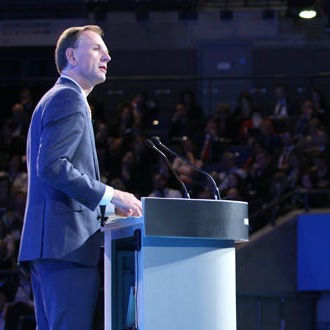NHS England to spend a ‘much higher proportion’ of budget on general practice over next five years

NHS England will be investing ‘a much higher proportion’ of its budget on GP services including premises, it has said in its five-year plan announced today.
It said that ‘given the pressures they are under, we need a “new deal” for GPs’, and promised to ‘stabilise core funding’ for GPs for the next two years.
The plans also reveal that it will increase funding for ‘primary care infrastructure’ and design incentives to encourage GPs to work and set up new practices in ‘under-doctored areas’.
It also confirmed plans trailed by chief executive Simon Stevens at the RCGP conference earlier this month for ‘Multispecialty Community Providers’ set up by GPs that will employ consultants, alongside ‘Primary and Acute Care Systems’ that will be hospitals employing GPs.
The GPC said the ‘time for talking’ about funding was over, and it was time for NHS England to make the funds available, and it also expressed its ‘grave concerns’ about plans for hospitals to employ GPs.
The ‘Five-Year Forward View’, which was co-authored with CQC, Monitor, the Trust Development Authority, Public Health England and Health Education England, says that primary care remains the ‘foundation’ of the NHS.
Related stories
Reaction: NHS England’s five year plan
In full: NHS England’s five year plan
‘Corner shop’ GPs should expand and employ hospital consultants, says NHS England
The document says: ‘The foundation of NHS care will remain list-based primary care. Given the pressures they are under, we need a “new deal” for GPs. Over the next five years the NHS will invest more in primary care, while stabilising core funding for general practice nationally over the next two years.’
It adds: ‘General practice, with its registered list and everyone having access to a family doctor, is one of the great strengths of the NHS, but it is under severe strain. Even as demand is rising, the number of people choosing to become a GP is not keeping pace with the growth in funded training posts – in part because primary care services have been under-resourced compared to hospitals. So over the next five years we will invest more in primary care.’
In response to a question from Pulse, Mr Stevens said NHS England could not put a figure on the amount to be invested in primary care because the overall NHS budget is not yet known.
He said ‘We do explicitly say that we think that spending in primary care needs to increase and there are some things that need to be done immediately to stabilise the pressures that exist in general practice.
‘And, obviously we don’t put a figure on the different elements of spending over the next Parliament because we don’t know what the overall NHS budget is going to be, but we think it is entirely likely that to deliver on the care models that are described here, we will be seeing a much higher proportion of the NHS budget going on primary care.’
Other key points from the document include:
- GP-led organisations employing nurses, community health services, hospital specialists, and ‘perhaps’ mental health and social care to provide ‘integrated out-of-hospital care’.
- Hospital trusts employing GPs and using surplus hospital budgets to invest in branching out to deliver primary care.
- An estimate that the projected £30bn funding gap in the NHS budget by 2020 could be reduced to around £8bn based on these efficiencies.
GPC deputy chair Dr Richard Vautrey said that NHS England must act now.
He said: ‘Much of what is in the report has been stated many times before and whilst there is a lot of talk about investing in general practice, the time for talking is over, it’s now time to act and urgently invest in core general practice.
‘The bottom line is that there is only three-quarters of the historical investment left in general practice and working at scale won’t help solve this problem. We need to get back to 11% of NHS funding spent on general practice to have any chance of addressing the current crisis.’
He also said that the GPC is already supporting practices working together in bigger groups, but attacked the plans for the new models of primary care.
He said: ‘We have grave concerns about hospitals taking over practices. This may be necessary in exceptional circumstances, such as some remote and rural area where it is not viable to sustain practices in any other way, but we know from experience that hospitals are good at sucking resources out of community services, not investing in them.’









